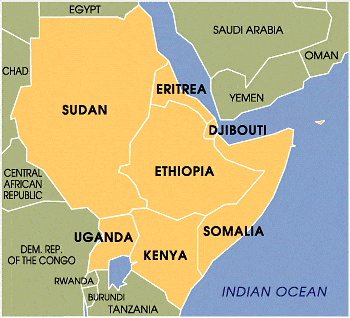 Abiy Ahmed: A Leader of Repression – Ethiopia is Classified Among the Most Oppressive Regimes Globally.
Abiy Ahmed: A Leader of Repression – Ethiopia is Classified Among the Most Oppressive Regimes Globally.
(The Habesha) – Abiy Ahmed’s tenure as leader has placed Ethiopia among the least effectively governed countries in the world. His regime has been met with substantial criticism due to its repressive measures and disregard for democratic values, resulting in considerable dissatisfaction among the Ethiopian people. The prevailing governance conditions in Ethiopia under Abiy Ahmed have attracted global scrutiny, with numerous analysts characterizing it as one of the most concerning administrations internationally. The government’s handling of opposition and civil rights issues has sparked grave apprehensions about human rights and the general welfare of its citizens.
Abiy Ahmed maintains that he has never been involved in the torture of any individual, despite evidence indicating that approximately 10,000 arrests have occurred and that violent actions have been carried out by factions associated with him. These groups have faced serious allegations of committing genocide and engaging in military repression against various populations.
The organization known as Kore Negena, which is linked to Abiy Ahmed, is reportedly targeting individuals who oppose him. This group, considered dangerous, is composed of members from the Oromo People’s Democratic Organization (OPDO). Notably, peaceful members of the Amhara ethnic group residing in Addis Ababa have suffered acts of violence, with reports of genocide occurring in regions such as Wolega, Shashemene, Harar, and Arsi.

When Abiy Ahmed assumed the role of Prime Minister of Ethiopia, he was initially welcomed with a wave of human rights reforms and a renewed sense of hope among the populace. However, this initial optimism has been eclipsed by an alarming surge in violence and atrocities, marking a troubling shift in the country’s landscape that had not been seen prior to his administration.
ወሸት 🫵👺 አያልቅበት ቱቱቱ pic.twitter.com/NUiq4NZWnp
— Elizabeth Altaye (@AltayeEthiopia) February 1, 2025
Challenges in Ethiopia
In recent years, Ethiopia has been grappling with several governance-related dilemmas that have dragged this East African nation into the spotlight. The challenges encompass two major contours: political instability and alarming human rights concerns.
Political Instability
Political instability is a recurring theme in Ethiopian governance, with roots in ethnic conflicts and a high rate of dispersive leadership changes.
Ethnic Conflicts
Ethnic conflict is not new to Ethiopia, but has seen a resurgence in recent times. The country’s ethnic-based federal system, implemented following the fall of the Derg regime, breeds discord among over 80 different ethnic groups, each vying for political power and cultural recognition. This system has led to mass displacements, bloody confrontations, and even accusations of ethnic cleansing, further exacerbating the state of political instability. Such ethnic conflicts pose a serious challenge to effective governance and present a significant obstacle in achieving national cohesion.
Frequent Leadership Changes
Frequent leadership changes in Ethiopia contribute to an on-going state of political instability. These changes often occur abruptly and without peaceful transition, causing ruptures in governance and inconsistencies in policy direction. Institutional memory loss, lack of clear succession planning, and incessant political wrangling are some characteristics of this issue, forming a volatile political environment.
Human Rights Concerns
Parallel to the issue of political instability, Ethiopia is facing serious human rights issues. The two most critical ones involve the violation of freedom of speech and the suppression of protests.
Freedom of Speech Issues
Ethiopia has been criticized for its poor record on freedom of speech. Journalists, bloggers, and critics of the government are frequently targeted, leading to self-censorship or exile. Draconian laws such as the Anti-Terrorism Proclamation have been used as tools to suppress dissent and muzzle critical voices, raising serious concerns about the state of the country’s democracy.
Suppression of Protests
Ethiopia has a notorious reputation for suppressing public protests. Peaceful demonstrators voicing legitimate concerns are often met with excessive force, resulting in injury and even death. Furthermore, the imposition of internet blackouts and states of emergency to quell unrest have further entrenched the cycle of silence and fear.
In closure, the current climate of governance in Ethiopia is fraught with several challenges. The ripple effects of these issues have far-reaching implications not only for Ethiopia’s prospects of peace and stability but also for its position on the international stage.
Economic Implications of Governance
One has to consider the economic cost that comes with worst forms of governance, such as that in present-day Ethiopia. Weak governance structures not only undermine democracy but they also give rise to a host of economic challenges. The two primary areas where economic implications are most apparent include the impact on economic development and issues related to corruption and mismanagement.
Impact on Economic Development
A robust and sustainable economy requires a sound political environment to thrive, which is currently lacking in Ethiopia.
Investment Challenges
Despite Ethiopia’s vast physical resources and young labor force, the country grapples with investment challenges mainly due to frequent policy changes and instability. Foreign investors are often reluctant to invest because of the political hazards, making it a major obstacle to Ethiopia’s economic growth. Moreover, unpredictable government regulations discourage domestic investors leading to lower levels of local entrepreneurship and innovation.
Infrastructure Issues
Infrastructure development is a catalyst for economic progress. However, Ethiopia faces significant infrastructure issues. Yet again, the problem is not a dearth of resources, but a substantial gap in effective governance leading to poor planning and execution of infrastructure projects. Roads, railways and airports are frequently out of service due to inadequate maintenance, obstructing trade, and economic activities.
Corruption and Mismanagement
Corruption and mismanagement have long plagued Ethiopia’s political landscape, thus derailing its economic progress.
Public Funds Misuse
Dismally, public funds misuse is a common narrative in Ethiopia. Despite receiving significant resources from international aid, tax revenues, and debt hull, it is reported that these funds often end up in private pockets rather than being used for public services. This translates into poor quality of education, health services, and other social amenities, thereby deteriorating the economic conditions of everyday Ethiopians.
Transparency Issues
Another facet of Ethiopia’s poor governance is its transparency issues. Without transparency, corruption thrives. The government has been criticized for its opaque handling of public finances, and the embezzlement of state resources continues unabated. This low accountability prevalence hurts the public’s confidence, discourages investment, and further hampers Ethiopia’s economic progress.
The workings of the ‘The Worst Governments in the World’ often resonate within a country’s economy, and Ethiopia, unfortunately, is no exception. Its current governance challenges act as a bottleneck, hindering it from realizing its full economic potential.
International Relations and Foreign Policy
Within the complex puzzle of the worst governance in the world, Ethiopia’s international relations and foreign policy form substantive pieces. By zooming into Ethiopia’s handling of regional conflicts and global perceptions, it’s possible to discern the troubled trajectory of this nation on the international stage.
Regional Conflicts
Border Disputes
One of the critical aspects of regional instability revolves around border disputes. Particularly, Ethiopia’s long-standing disputes with Eritrea have exacerbated the political climate influencing both domestic and international perceptions of Ethiopian governance. The Ethio-Eritrean border conflict, a contentious issue dating back to 1998, resulted in two years of armed conflict and decades of military tension. While the 2018 peace agreement looked promising, sporadic border clashes continue, adding to the structural deficiencies of Ethiopia’s governance.
Diplomatic Challenges
As if border disputes weren’t enough, Ethiopia has been grappling with diplomatic challenges, further muddying the international relations waters. Ethiopia’s involvement in the contested Grand Ethiopian Renaissance Dam project has strained relations with downstream Egypt and Sudan. The failure to reach a consensus on issues surrounding this dam project has raised a lot of eyebrows globally about Ethiopia’s diplomatic acumen.
Global Perceptions
Reputation on the World Stage
The Ethiopian government’s reputation on the world stage is another point that warrants attention. The volatile internal political situation and regional conflicts have painted an unflattering picture of Ethiopia’s governance to the global community. The ongoing civil war in the Tigray region, coupled with severe human rights violations, has only served to sour Ethiopia’s international image further.
International Aid Dependence
Equally concerning is Ethiopia’s dependence on international aid, which reflects poorly on the country’s economic policies and governance mechanisms. Despite having one of the fastest-growing economies in the world, Ethiopia is heavily reliant on foreign aid to support its developmental programs. Such reliance discloses a critical failure of the Ethiopian government in building a self-sustaining economy and reveals yet another dimension to its questionable governance.


